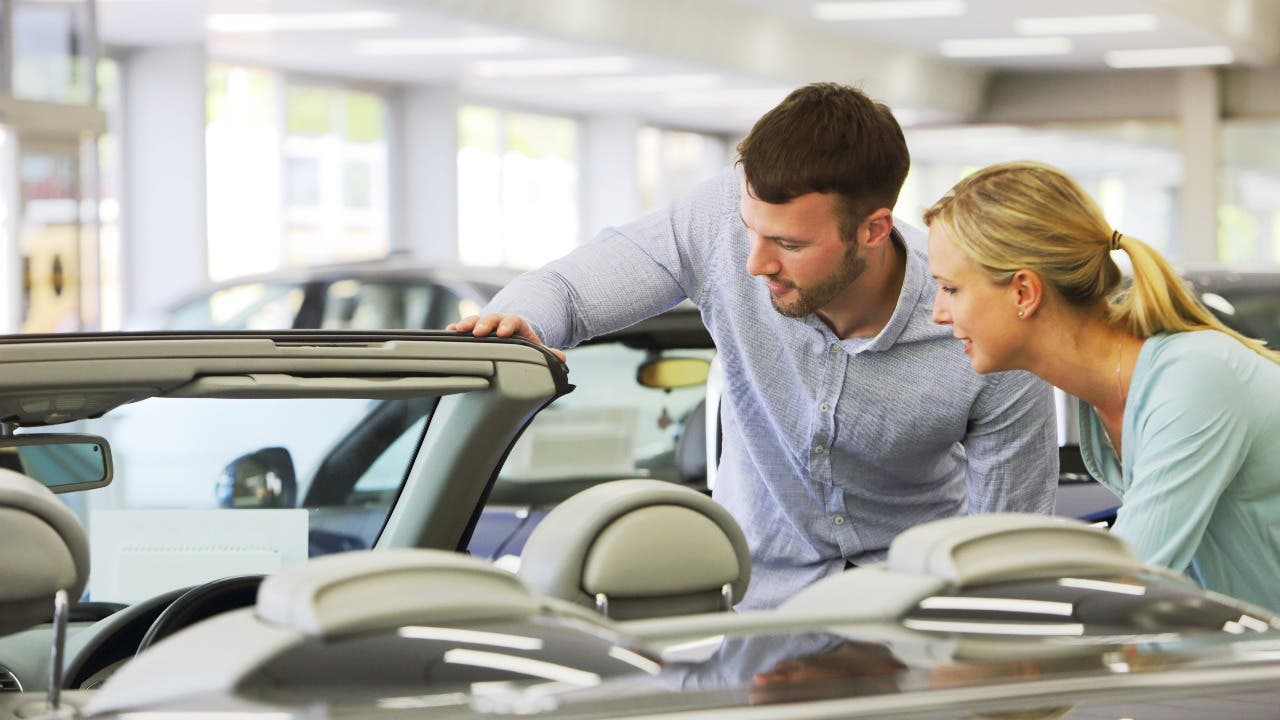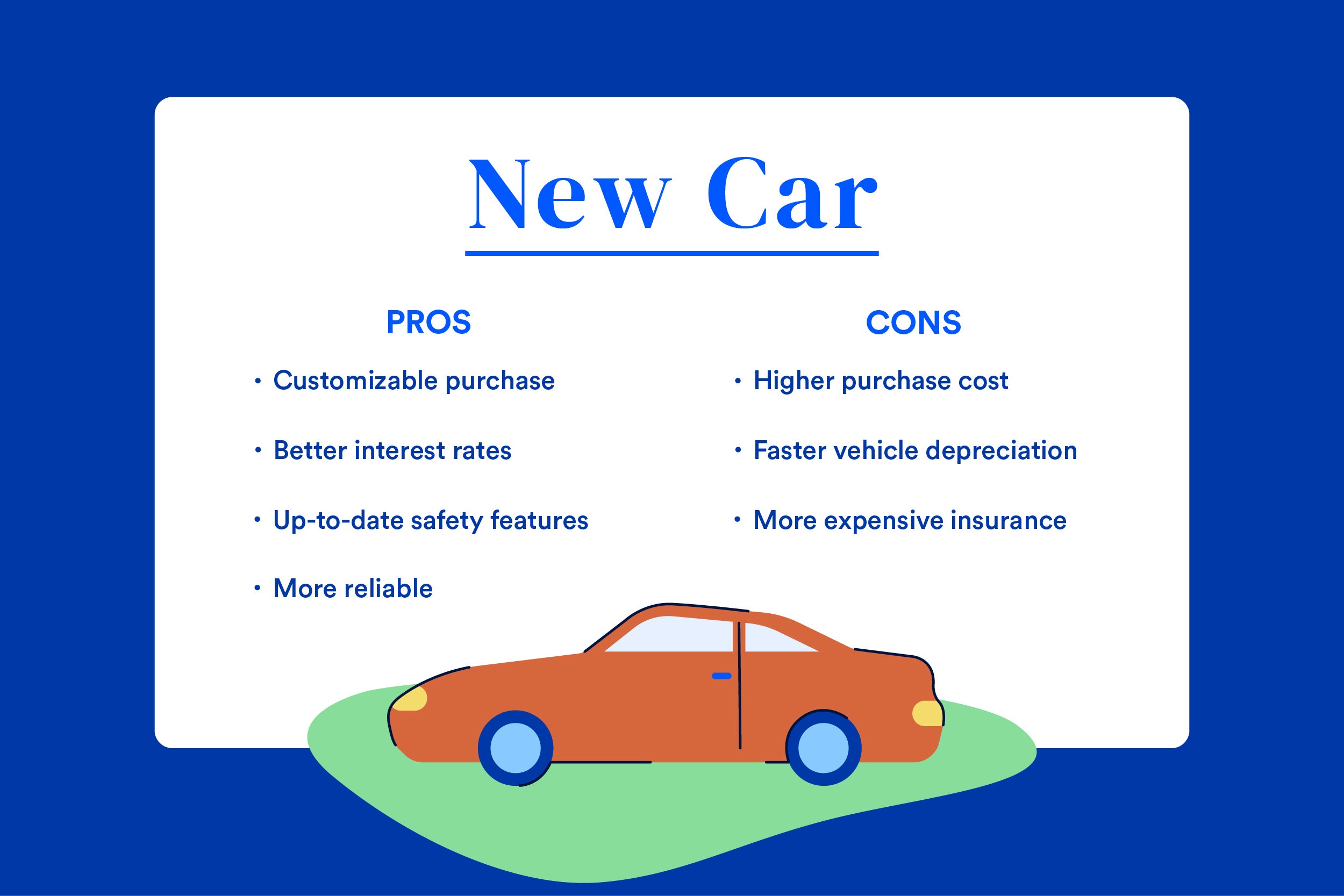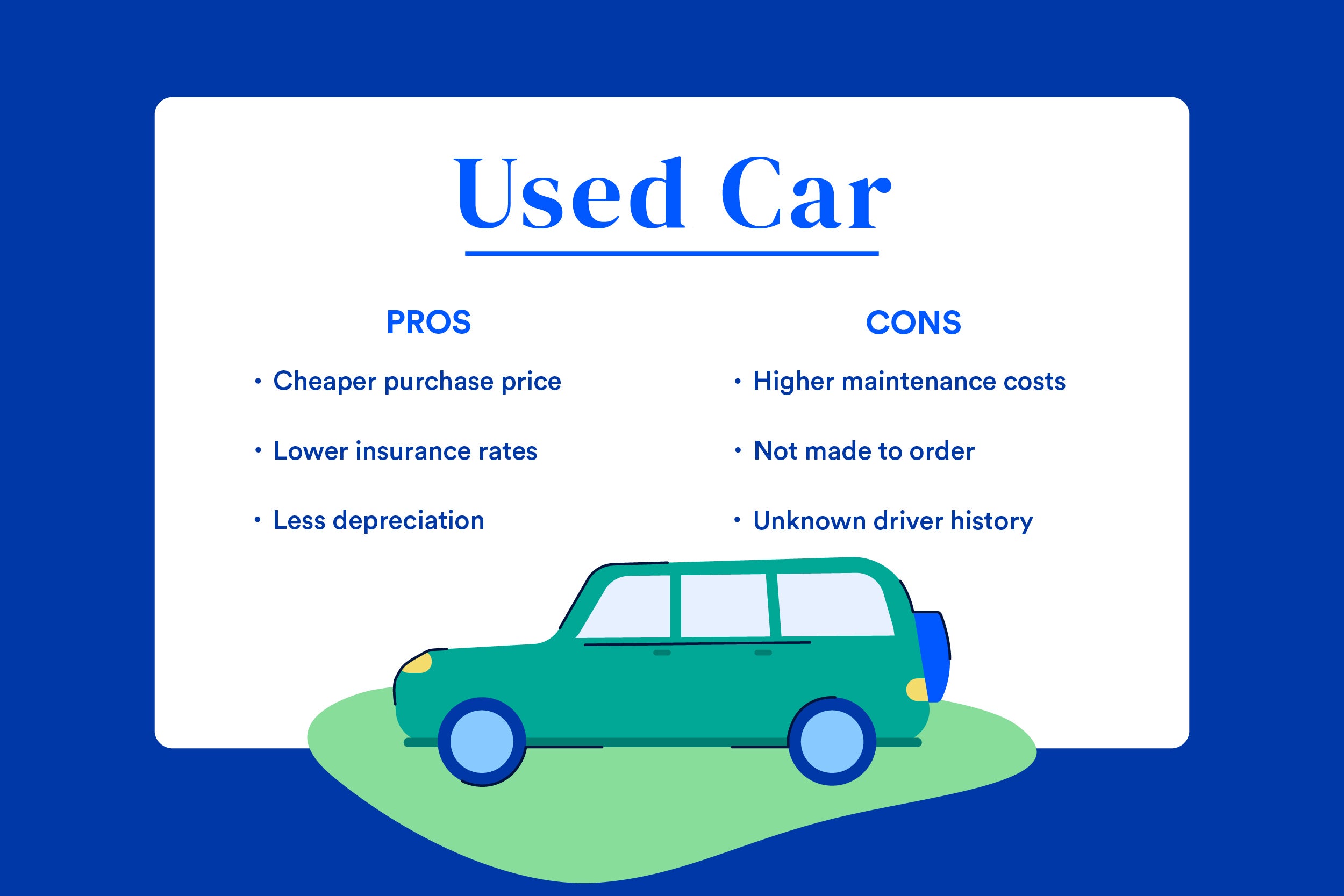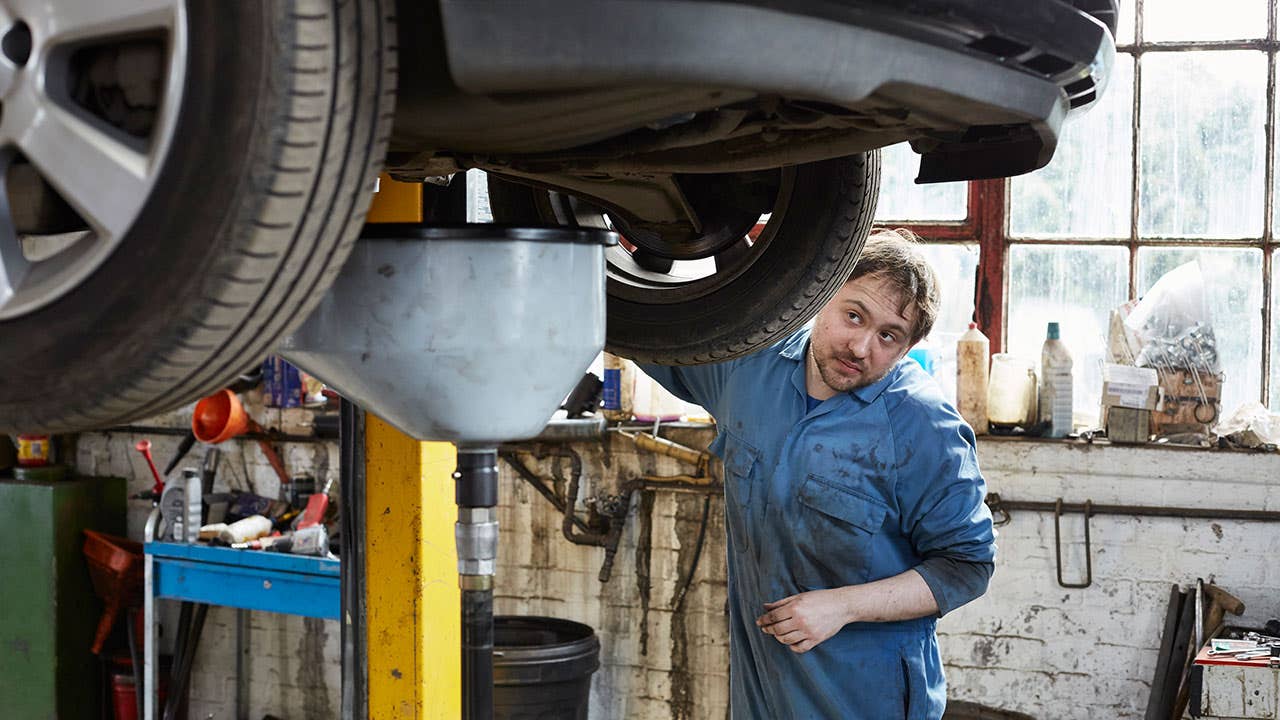
It’s the option that millions of car buyers make each year: Would you purchase a brand-new ride or opt for a mature car to save cash? Deciding between that new car smell or perhaps a pre-owned vehicle is dependant on more than just price — but it’s an important factor. Driving new costs typically $648 monthly while used averages at $503, based on the Experian Q1 2022 State of Automotive Finance Market.
Key takeaway
Buying new could be a good choice if you would like the most recent features and cheaper initial maintenance costs. Buying used might fit better if you are willing to compromise on some features to reduce the initial purchase and insurance.
Compare costs: New vs. used cars
There are several options when it comes to scouting out your purchase, whether it is new or used. You'll find new cars in a local dealership, or by searching for sites like Autotrader or Edmunds. Used cars can be found through dealerships as well, however, you can also locate them — potentially cheaper — through independent dealers, private-party sellers or superstores like CarMax, Vroom or Carvana.
In general, used cars are cheaper than new cars, and that's why many borrowers choose a model that’s a couple of years old. But have increased dramatically during the last few years. New car payments have jumped from the monthly average of $554 in 2022 to $648 in 2022, a 17% difference. Used cars also saw a drastic jump from $391 on average to $503, a 28.6% difference.
To best prepare for the cost of owning a vehicle — new or used — Prizes and Edmunds can give you a sense of purchase costs and five-year maintenance costs. Here’s a cost breakdown from Edmunds for any brand-new Honda Accord versus a used one.
| New 2022 Honda Accord EX-L | Used 2022 Honda Accord EX-L | |
| Typical listing price | $31,066 | $22,444 |
| Estimated monthly payment | $573 | $462 |
| Estimated first year of ownership maintenance costs | $133 | $1,212 |
Monthly payments derive from the average rates of interest for brand new and used vehicles as of Q1 2022 and a 60-month term. Maintenance and repair costs for the newbie of ownership are based on Edmunds.
Price shouldn’t be the sole factor you consider when choosing an automobile. It's also wise to factor in vehicle depreciation, security features, reliability as well as your own personal preferences.
Considerations when buying a new car

Buying a new car is an investment in the newest technology and typically a lower maintenance one than purchasing a used car.
Pros of buying new
A new car has a selection of features — many of which you're able to pick if you're able to find the correct dealership.
- Customization: The primary benefit of purchasing a new vehicle is that you will be able to have it outfitted exactly to your preferences — you are able to choose the style and color you want and request any add-ons that appeal to you.Current technology: There are practical advantages too; you'll drive off with the latest technology and safety features.Better rates of interest: With a new car purchase, you are also more likely to obtain a better rate of interest with an car loan than you would with a car or truck purchase, often by a number of percentage points. Reliability: You won’t need to deal with any potential hidden mechanical problems when you buy new. Plus, the vehicle’s warranty should limit the amount you spend on repairs and maintenance in the first couple of many years of ownership.Cons of buying newBrand new also comes with a few downsides.More expensive: New cars in many cases are several thousands of dollars more expensive than their used counterparts, that could create a deposit or monthly loan payments harder to pay for.Depreciation: You’ll also have to contend with vehicle depreciation, or even the rate where your vehicle loses value. As they say, new cars lose value as soon as you bring them off the lot. Experian estimates that new cars lose 20 % of their value within the newbie, and depreciation continues for that first 10 years of ownership.Higher insurance charges: New cars often are more expensive to insure. This is because there is a higher possibility of theft, with their higher value and other related factors.
If you do choose that purchasing new is the solution you're looking for, plan and look out for seasonal deals. Timing your vehicle purchase carefully and shopping around for car loan rates can soften a few of the upfront expenses.
Considerations when purchasing used

Used cars typically have a discounted tag and depreciate much slower but produce other shortcomings to watch for.
Pros of buying used
When considering buying a used car, take these benefits into consideration.
- Less expensive: One primary advantage of used vehicles is they are usually less expensive than their new counterparts. Obtaining the same model you'll need a couple of years old can save you a couple thousand dollars.Lower insurance charges and costs: Many pre-owned cars carry lower insurance costs, titling fees and purchasers taxes. This could help you save both in the point of purchase and also over the life of ownership.Slower depreciation: Used cars also depreciate much more slowly. Rather than losing 20 percent of its value in the first year of ownership, a three-year-old car would likely only lose near to 10 %.
Cons of buying used
With having said that, buying used may need additional legwork.
- Making compromises: You will need to search to obtain the exact style, color and add-ons that you would like. And even then, you might want to make some compromises. The car market is extremely competitive right now, and you'll not be able to tick every box.Car history: You must also check the vehicle’s maintenance record to make sure that the previous owner took good care of it. It’s a good idea to bring the vehicle to a trusted mechanic for a checkup — together with a brake check and engine test — before closing any deal. You can expect to pay about $100 for the mechanic’s efforts, but it is worthwhile.Increased maintenance costs: Even when the car is in relatively good condition, a second hand car will in the end need more maintenance and repairs with time. This might eat into the savings you get from your initial purchase, so consider your long-term budgeting when choosing new versus used.
If you are attempting to save money in your initial purchase, a second hand car is a great choice. But you’ll have to take into account the cost over the life of ownership — including maintenance and repairs.
Certified pre-owned options
If you’re leaning toward buying used but are still hesitant about trusting the vehicle’s history, a certified pre-owned vehicle is a superb choice. A certified pre-owned car is really a used car that has undergone an entire inspection by a dealership or the manufacturer.
These cars serve as a middle ground between new and used vehicles when it comes to upfront price, since you’ll pay extra for the inspection. However, this extra certification is perfect for a person who wants the safety of the car in perfect condition with no cost of a brand-new vehicle.
How to choose whether to purchase a used or new car
Deciding from a new or used vehicle can come down to a variety of factors, including financial considerations as well as your preferences and needs. Here are some from the issues to think about when choosing which kind of purchase is right for you.
- Budget: The range of costs associated with a car in many cases are cheaper whenever you purchase a used vehicle rather than a new one. Everything from the price of auto insurance to dealer fees will be more affordable whenever you buy a second hand vehicle. And, with respect to the vehicle you select, the value will also typically be less for any used car.
- Bells and whistles: One of the benefits of purchasing a new car is that it includes the latest technology and security features. What’s more, if having the ability to pick a specific vehicle color or interior finishes is important to you, a brand new car purchase will make this easier. When purchasing a second hand car, you may have to spend quite a long time searching to get exactly what you want.
- Maintenance needs: An automobile that is slightly older might have higher maintenance costs, which is an important consideration if you have a limited household budget. Much of the maintenance associated with a new car will probably be under warranty.
How to find the best deal in your car
Whether you decide to buy new or used, remember that researching the automobile is easily the most crucial aspect in getting a great buy. Your research will include checking the model’s safety record, insurance charges, five-year cost-to-own. There are also calculators will help to make a decision.
You also needs to take the time to test-drive multiple vehicles and shop around with a few sellers, getting quotes from a few auto loan lenders to actually are getting the cheapest payment per month possible.
The bottom line
Deciding between used and new comes down to a number of factors, as well as your concerns around depreciation, budget, whether you’re set to possess certain features and how long you plan on having your car. Once you have a car in mind, look around and get preapproved for financing prior to you heading to the dealership.








